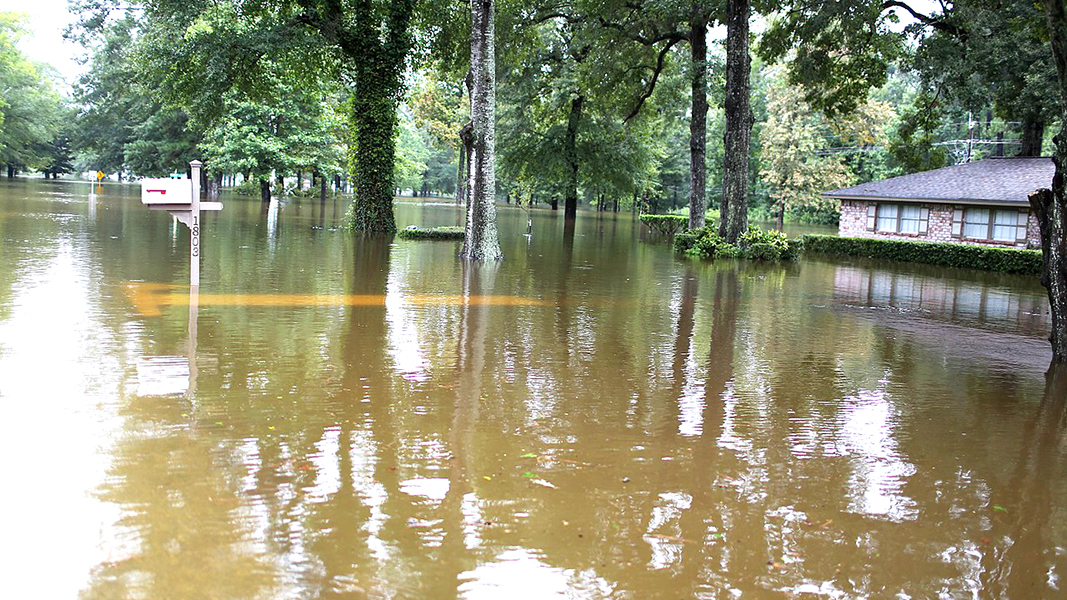Top: Hurricane-related flooding
Credit: Jill Carlson (jillcarlson.org) from Roman Forest, Texas, USA / CC BY (https://creativecommons.org/licenses/by/2.0) (Cropped, adjusted)

Nora Goldstein
BioCycle first reported on climate change in the 1970s. And over the last four decades, time and again, we have hammered home the scientifically proven benefits that organics recycling offers to draw down carbon in the atmosphere — while simultaneously improving soil health and water quality.
This political season, combined with one swath of the U.S. on fire and another swath pretty much swamped with water (not to mention record-setting hot temperatures), it struck me that “climate politics” is an oxymoron. The climate isn’t political. It doesn’t care whether we are blue, red, purple, green or any other color of the beautiful rainbows that Mother Nature delivers. It doesn’t care whether we believe the climate is changing or deny it. Fires and floods are indiscriminate. We are seeing (and for many experiencing) that in real time.
Climate policies, on the other hand, are political, and lead to robust debates about the steps our world must take to dramatically reduce carbon emissions and resolve the numerous crises that climate change has delivered. We have flat run out of time to discuss whether we are living in a changing climate. And if we don’t hurry, we will run out of time to broadly implement solutions that are here, right now.
Which brings me back to organics recycling. Our solutions are here, right now. Investing in these solutions results in measurable environmental and economic returns — and in most cases, benefit the people in our communities. These solutions are captured in local and state policies and regulations. These solutions are finding their way into corporate sustainability commitments and investments.
It is time to put climate politics aside, and move as a nation, and as a world, to climate policies that drive solutions.













